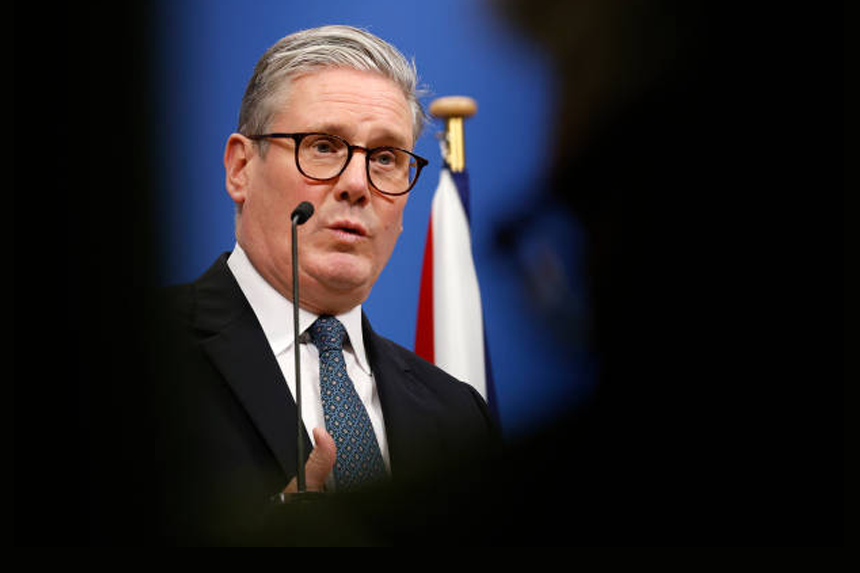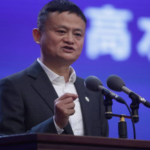Next Thursday, Sir Keir Starmer will be visiting the White House walking a careful diplomatic line. Along with trying to get the ear of President Donald Trump, who has started negotiations with Russia to bring the war to an end, his Starmer White House Visit will demand him to continue support for President Volodymyr Zelensky and Ukraine’s administration. All of this has to be accomplished while dodging the vicious verbal crossfire between Washington and Kiev.
There will be no simple chore involved here. Relations between transatlantic countries are fractured. The US president has reversed America’s long-standing backing for Ukraine and underlined Europe in the process. While Vice President JD Vance has candidly challenged the core essence of European democracy, US Defense Secretary Pete Hegseth has announced that European security is no longer a US priority.
Under the weight of expectations both at home and abroad, Starmer White House Visit will be conducted at the core of these changing partnerships. Historically a main link between the US and Europe, the UK will have to restate its diplomatic influence without offending either side. Apart from winning Trump’s confidence, Starmer’s challenge is to guarantee Britain stays a relevant and recognized voice in debates on world security.
How may Starmer maximize his position?
Diplomats point out that Starmer’s permanency in government gives him one advantage over his European partners. Trump, they contend, is one of the few European leaders who will probably stay in office during his presidency, thus he understands that Starmer White House Visit is important. Furthermore appreciated by the US president is the healthy parliamentary majority of the British prime minister.
“I get along with him well,” Trump lately stated. “I find him really appealing. Though I think he’s a really decent person and thus far he’s done a very excellent job, he is liberal, which is rather different from me.”
Warm words and familiarity, nevertheless, are hardly worth lunch along the Washington beltway. Starmer has to present something specific to grab Trump’s interest. He must build credibility not merely as a leader but also as someone who can significantly advance the bargaining process.
For what could Starmer provide Trump?
One of Starmer White House Visit’s main presents is his suggestion to send British soldiers to Ukraine as part of a post-war reassurance force. Some European officials were offended by this action since they saw it as premature and divisive. It also ran the danger of alienating Europe from more general talks about Ukraine’s geographical status and sovereignty. Still, this dedication might bring Starmer some diplomatic favoritism in the White House.
UK defense expenditure is yet another important negotiating chip. Starmer may stress Britain’s dedication and demand other European partners to match her objective of spending 2.5% of national income on defense, even if he is not anticipated to declare a precise timeframe for achieving this. Ensuring that the UK keeps a presence at the global table depends critically on strengthening military capabilities and matching with the US on defense priorities.
Former MI6 chief Sir Alex Younger underlined the significance of this by saying, “We need to demonstrate that we are prepared to play a role, take control of our own environment, recognize that we have got to develop our power, and that has got to be done quickly.”
Britain can also suggest military cooperation with the US and intelligence-sharing programs as part of a larger approach to strengthen the special relationship. Both countries’ intelligence services have long collaborated closely, and strengthening these links could be another means for Starmer to curry favor.
How Might Starmer Persuade Trump About Ukraine?
Starmer’s key case is that Trump’s own interests would be undermined by a hurried peace deal negotiated on Russian terms. He will want to underline that, in the long run, the terms of any ceasefire—its fairness, permanency, and protections—are just as important as temporarily stopping the war. A badly written peace accord that falls apart rapidly might sour Trump’s reputation.
“If I were Starmer, you would say to Trump that this is your chance for your place in history, the man who brought peace and ended this war,” said former UK ambassador to the US Lord Darroch. “But it needs to be a reasonable price. Should a deal be disastrous, you will not be praised; instead, you will face a lot of criticism, and that will be your record in the annals.
Encouragement of Trump to pressure Vladimir Putin by threatening to seize frozen Russian assets, so boosting support for Ukraine, and so strengthening sanctions will be fundamental in this case. Trump’s government will have to choose whether long-term stability or a quick peace agreement should take the stage.
What Are the Starmer Visit Risk Factors?
This excursion carries a great deal of danger. Trump, with his delicate sensibilitiesation, would find offense in Starmer’s refuting of his claim that Zelensky is a tyrant. The US president could also object at Starmer’s insistence that any European reassurance force sent into Ukraine must have an American “backstop,” probably in the shape of air cover.
As British officials get ready for the visit, diplomatic hazards—cross words and canceled press conferences—are first on mind. They also know quite well that French President Emmanuel Macron will be in Washington early in the week vying for Trump’s attention.
Will Trade Turn into a Sticking Point?
Trade represents still another possible source of conflict. Trump’s staff is thinking about taxing UK goods imported into the US that correspond with the VAT applied on American goods arriving into the UK. Britain could contend that by focusing on British and European trade, their capacity to pay more for defense would be compromised. Officials admit, though, that a president who feels Europe is militaristically and economically abusing the US would find this difficult to sell.
Starmer White House Visit will probably revolve on trade talks, thus finding common ground on economic policies will probably be just as vital as handling security issues. The UK will have to strike a compromise between safeguarding its economic interests and avoiding becoming entangled in a more general trade conflict between the US and the EU.
Could the UK help to close the widening ideological gap?
The biggest concern is that the fundamental ideological difference between Europe and the US will not be resolved with any amount of charm, political wrangle, or diplomacy. Maybe no transactional offer exists to close the distance.
“We live in a US presidency grounded on great power diplomacy,” one official observed. “Okay if we can operate inside that. Should not be the case, God assist us.
Success for the Starmer White House Visit will not be determined just by agreements made but also by how Britain is seen in relation to world issues. Should the UK become a respectable actor in world diplomacy, ready to act boldly while maintaining stability, Starmer’s visit might mark a turning point. But if he fails to get significant concessions or change the course of US foreign policy, his trip might draw attention to Britain’s limited influence in a fast changing geopolitics.








